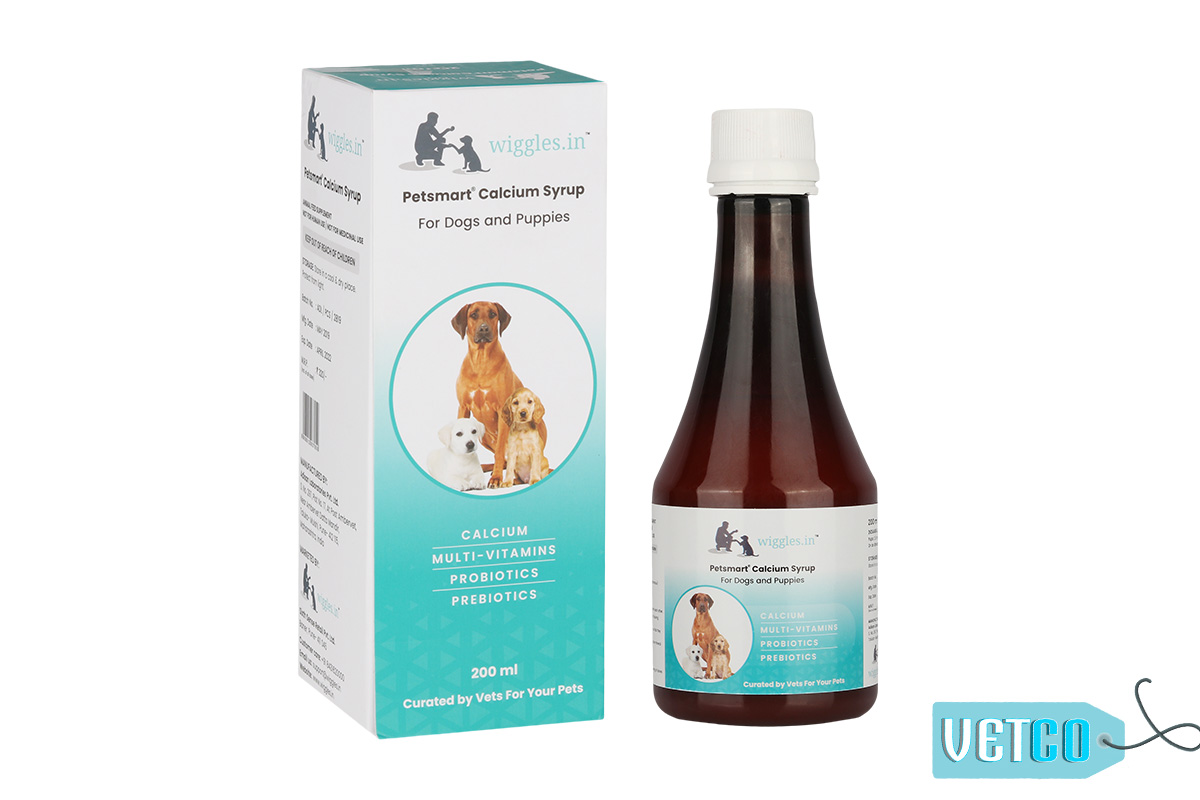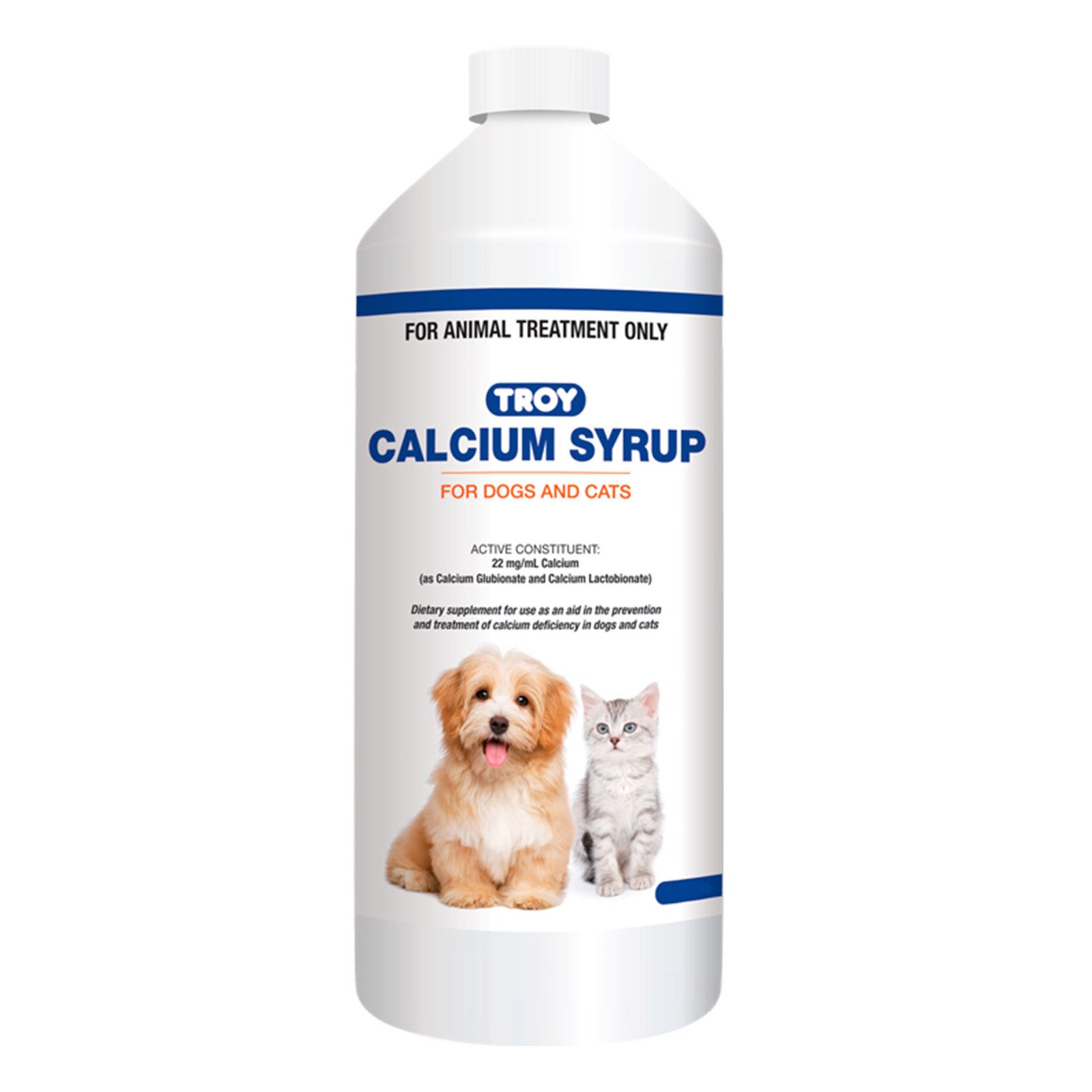Ensuring the well-being of our furry companions requires meticulous attention to their nutritional needs. Among the essential nutrients, calcium stands out as a cornerstone for robust bones, healthy teeth, and overall vitality in dogs and cats. This comprehensive guide delves into the significance of calcium syrup as a dietary supplement, exploring its benefits, recommended intake, and proper administration for pets.
Understanding the dietary significance of calcium for dogs and cats is crucial. This mineral plays a pivotal role in maintaining strong bones and teeth, facilitating proper growth and development, and preventing deficiencies that can lead to severe health issues. Calcium syrup emerges as a convenient and effective means of supplementing calcium intake, offering numerous advantages over other forms of supplements.
Dietary Significance of Calcium for Pets
Calcium is a vital mineral that plays a crucial role in maintaining the overall health and well-being of dogs and cats. It is essential for the development and maintenance of strong bones and teeth, ensuring structural integrity and mobility.Calcium is particularly important during the growth and development stages of pets, as it contributes to the proper formation and mineralization of bones.
Adequate calcium intake helps prevent skeletal abnormalities, such as rickets in puppies and kittens, which can lead to bone weakness and deformities. In adult pets, calcium is necessary for maintaining bone density and preventing osteoporosis, a condition that can weaken bones and increase the risk of fractures.Beyond
its role in bone health, calcium also plays a vital role in muscle function, nerve transmission, and blood clotting. It contributes to the proper functioning of the heart, muscles, and nervous system, ensuring optimal performance and coordination. Calcium is also essential for maintaining electrolyte balance and fluid homeostasis within the body.
Calcium Deficiency in Pets
Calcium deficiency can occur due to inadequate dietary intake, impaired absorption, or increased demand during periods of rapid growth or pregnancy. Symptoms of calcium deficiency can include:
- Bone weakness and deformities
- Muscle cramps and weakness
- Nervous system disorders
- Cardiovascular problems
- Poor appetite and growth retardation
Severe calcium deficiency can lead to life-threatening conditions, such as seizures, heart failure, and death. Therefore, it is crucial to ensure that pets receive adequate calcium through their diet or supplements to maintain optimal health and prevent deficiencies.
Calcium Syrup as a Dietary Supplement

Calcium syrup is a common dietary supplement used to address calcium deficiencies in pets. It provides a concentrated source of calcium, which is essential for maintaining strong bones, teeth, and overall health.
Compared to other forms of calcium supplements, calcium syrup offers several advantages. It is easy to administer, as it can be mixed with food or water, making it palatable for pets. Additionally, the liquid form ensures rapid absorption and utilization by the body.
Disadvantages
- May contain added sugars or sweeteners, which can contribute to weight gain or dental problems.
- Can be messy to administer, especially for pets that are resistant to taking oral medications.
- May interact with certain medications, such as antibiotics or diuretics, so it’s important to consult with a veterinarian before use.
Recommended Calcium Intake for Pets

The recommended daily calcium intake for pets varies depending on several factors, including age, breed, and activity level. For growing puppies and kittens, calcium is essential for proper bone development and mineralization. Adult dogs and cats require calcium to maintain strong bones and teeth, support muscle function, and regulate nerve transmission.
Factors Influencing Calcium Requirements
In addition to age and breed, other factors can influence a pet’s calcium requirements. These include:
- Pregnancy and lactation: Pregnant and lactating animals have increased calcium needs to support fetal development and milk production.
- Health conditions: Certain health conditions, such as kidney disease and pancreatitis, can affect calcium absorption and utilization.
Dosage and Administration of Calcium Syrup
Determining the appropriate dosage of calcium syrup for pets requires careful consideration of their weight, age, and health condition. Consult with a veterinarian to establish the optimal dosage based on these factors.The recommended frequency and duration of administration will vary depending on the pet’s specific needs.
Typically, calcium syrup is administered orally once or twice daily. The duration of treatment will depend on the underlying condition being addressed and the pet’s response to therapy.
Potential Side Effects and Precautions
While calcium syrup is generally safe for pets when used as directed, potential side effects may include constipation, vomiting, and decreased appetite. If any of these side effects occur, discontinue use and consult with a veterinarian promptly.Additionally, pets with underlying kidney or heart conditions should be monitored closely while receiving calcium syrup, as excessive calcium levels can exacerbate these conditions.
Calcium Syrup Composition and Ingredients
Calcium syrup is a liquid dietary supplement designed to provide additional calcium to dogs and cats. It typically contains a combination of active and inactive ingredients, each playing a specific role in the effectiveness of the supplement.
The active ingredient in calcium syrup is calcium, usually in the form of calcium gluconate or calcium citrate. Calcium is an essential mineral that supports bone health, muscle function, and nerve transmission.
Inactive Ingredients
Inactive ingredients in calcium syrup serve various purposes, including:
- Flavoring agents: To enhance the palatability of the syrup, making it more appealing to pets.
- Preservatives: To prevent spoilage and extend the shelf life of the syrup.
- Emulsifiers: To help blend the ingredients and create a smooth, uniform texture.
- Sweeteners: To provide a pleasant taste and encourage pets to take the supplement willingly.
Additives
Some calcium syrups may also contain additives such as:
- Vitamin D3: To enhance calcium absorption and support bone health.
- Phosphorus: To balance the calcium levels and promote bone mineralization.
- Magnesium: To support muscle function and nerve transmission.
Understanding the composition and ingredients of calcium syrup allows pet owners to make informed decisions about the supplement they choose for their pets.
Alternative Sources of Calcium for Pets
Apart from calcium syrup, there are various alternative sources of calcium that can be incorporated into your pet’s diet to ensure adequate calcium intake. These sources include calcium-rich foods and other supplements.
The bioavailability and effectiveness of different calcium sources vary. Some sources are more readily absorbed and utilized by the body compared to others. The bioavailability of calcium from food sources is generally lower than that from supplements, but it can still contribute to the overall calcium intake.
Calcium-Rich Foods
- Dairy products: Milk, yogurt, and cheese are excellent sources of calcium for both dogs and cats. These products are highly digestible and provide a good amount of bioavailable calcium.
- Leafy green vegetables: Vegetables such as spinach, kale, and collard greens are rich in calcium. However, the bioavailability of calcium from plant sources is generally lower than that from animal sources.
- Fish: Fish such as salmon, sardines, and tuna are good sources of calcium. The calcium in fish is highly bioavailable and easily absorbed by the body.
- Bones: Cooked bones, such as chicken or beef bones, can be a good source of calcium for dogs. However, it is important to feed cooked bones only, as raw bones can be dangerous and cause digestive issues.
Other Supplements
- Calcium citrate: Calcium citrate is a highly bioavailable form of calcium that is often used in supplements. It is well-absorbed and tolerated by both dogs and cats.
- Calcium gluconate: Calcium gluconate is another bioavailable form of calcium that is commonly used in injectable medications. It can be used to treat calcium deficiencies in pets.
- Calcium carbonate: Calcium carbonate is a less bioavailable form of calcium that is often used as a dietary supplement. It is generally less expensive than other forms of calcium, but it may not be as well-absorbed.
Storage and Handling of Calcium Syrup
Calcium syrup should be stored and handled properly to maintain its potency and prevent spoilage. Keep the syrup in a cool, dry place away from direct sunlight and heat. The ideal storage temperature range is between 59°F to 86°F (15°C to 30°C).
Avoid freezing the syrup, as this can damage its composition.
Proper Handling
Always use clean utensils to measure and administer the calcium syrup to your pet. Avoid contact with your pet’s saliva, as this can introduce bacteria into the syrup. Store the syrup in its original container to maintain its integrity and prevent contamination.
Discard any unused syrup after 30 days of opening to ensure its freshness and effectiveness.
Interactions and Contraindications
Calcium syrup may interact with certain medications or supplements, such as:
- Tetracycline antibiotics: Calcium can reduce the absorption of tetracycline antibiotics, making them less effective.
- Digoxin: Calcium can increase the effects of digoxin, a heart medication.
- Iron supplements: Calcium can interfere with the absorption of iron supplements.
Calcium syrup is generally not recommended for pets with certain health conditions, such as:
Kidney disease
Pets with kidney disease may not be able to properly excrete excess calcium, leading to hypercalcemia (high calcium levels in the blood).
Hypercalcemia
Pets with hypercalcemia already have high calcium levels, and giving them calcium syrup can worsen the condition.
Case Studies and Success Stories
Calcium syrup has been widely used to improve the health and well-being of pets, with numerous success stories reported by pet owners and veterinarians. Its effectiveness in addressing calcium deficiencies and related conditions has been well-documented.
Anecdotal Evidence
Many pet owners have shared positive experiences with using calcium syrup to treat their pets’ calcium deficiencies. For instance, one dog owner reported that their dog’s mobility and energy levels significantly improved after receiving calcium syrup supplements. The dog, who had previously been lethargic and had difficulty walking, regained its strength and vitality after taking the syrup.Another
cat owner reported that their cat’s skin and coat became healthier after being given calcium syrup. The cat’s fur became shinier and less brittle, and its skin became less dry and flaky.These anecdotal accounts provide valuable insights into the potential benefits of calcium syrup for pets.
While individual results may vary, these success stories suggest that calcium syrup can be an effective dietary supplement for addressing calcium deficiencies and promoting overall pet health.
Conclusion
In summary, calcium syrup can be a valuable dietary supplement for dogs and cats, providing essential calcium for their overall health and well-being. However, it is crucial to remember that before administering any supplements to your pets, it is always advisable to consult with a veterinarian to determine the appropriate dosage and potential interactions with other medications.
Final Summary
In conclusion, calcium syrup proves to be an invaluable tool in ensuring adequate calcium intake for dogs and cats, supporting their overall health and well-being. By adhering to recommended guidelines, pet owners can effectively address calcium deficiencies and promote strong bones, healthy teeth, and a vibrant life for their beloved companions.
However, it is essential to consult with a veterinarian before administering any supplements to ensure optimal outcomes and avoid potential interactions or contraindications.
Frequently Asked Questions
What is the recommended daily calcium intake for dogs and cats?
The recommended daily calcium intake varies based on factors such as age, breed, and activity level. Generally, adult dogs require around 100-200 mg of calcium per day, while adult cats need approximately 200-300 mg.
How often should I administer calcium syrup to my pet?
The frequency of administration depends on the specific product and the pet’s individual needs. Typically, calcium syrup is given once or twice daily, but it is crucial to follow the veterinarian’s instructions.
Are there any potential side effects of calcium syrup use?
While calcium syrup is generally safe when used as directed, excessive intake can lead to side effects such as constipation, vomiting, and decreased appetite. If you notice any adverse reactions, discontinue use and consult with your veterinarian.




